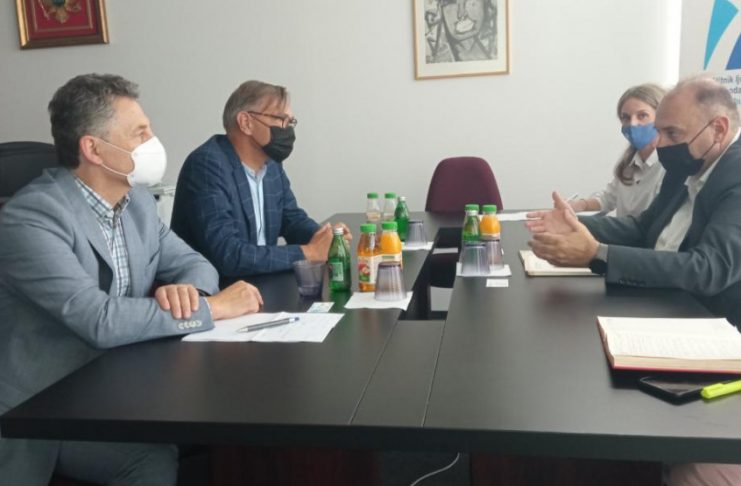The institution of the Ombudsman has a very important role for society and the state in the protection of human rights and freedoms and it is necessary to have adequate financial resources and staff to implement its complex mandate, said German Ambassador Robert Weber.
He visited the institution of the Protector with the First Secretary / Head of Administration Thomas Meindl and talked with the Ombudsman Siniša Bjeković about current topics in the field of human rights and freedoms in Montenegro as well as about the functioning of the institution.
Weber pointed out that ombudsman institutions have gained in importance in EU countries over the years since their establishment, and that this is also the case in candidate countries.
“We see that citizens still do not have enough trust in the system of public administration, and this institution is important here, and its work should influence the professionalism, transparency, impartiality and independence of the public sector,” he said.
Bjekovic presented the competencies and pointed out that the institution was given a broader mandate over time, but that this was not accompanied by an adequate increase in the budget.
“But we have increased public trust and expectation and we are trying to respond to all demands with the quality of opinion, application of European standards, impartiality and independence,” he said.
According to Bjekovic, the focus these days is on visiting small municipalities in the north of the country, where citizens have a lot of problems and an unsatisfactory standard of living.
The interlocutors agreed that Montenegro needs to strengthen its capacity and readiness for public dialogue on open issues as well as tolerance in society.
In this regard, Weber pointed to cases that have threatened the position of minority peoples in recent times, stating that Montenegro has so far been recognized as a country that successfully copes with such challenges in the Western Balkans and prevents their escalation.
“It would be sad if that changed and if these issues reached the top of the agenda on your path to integration,” he said.
Bjekovic reminded of the reactions and activities related to calming tensions and the determination to continue insisting on initiating and strengthening the culture of dialogue in the field of human rights and freedoms, among all socio-political actors.
The meeting also discussed the impact of the Crown on the exercise of human rights and freedoms of Montenegrin citizens, the most common violations in the field of restriction of movement and violation of the right to privacy, as well as the activities of the National Mechanism for Prevention of Torture and Anti-Discrimination.
The assessments from the last Non-Paper document were also mentioned, in which it was assessed that the Ombudsman institution “remains proactive, has good visibility, reach and productivity”. Finally, mutual readiness for project cooperation was expressed through joint activities with the NGO sector,” the statement concluded.
